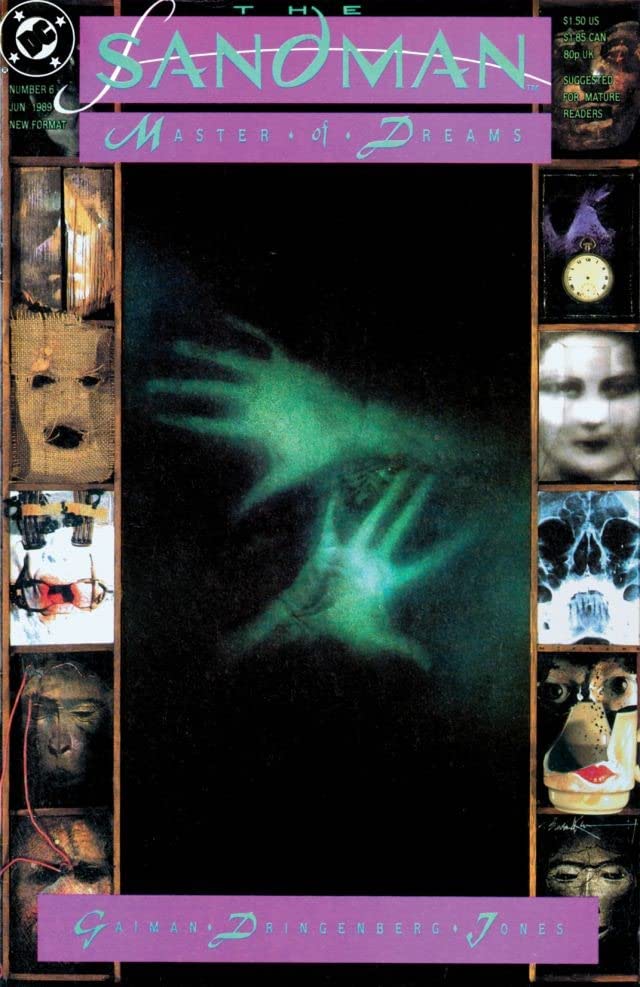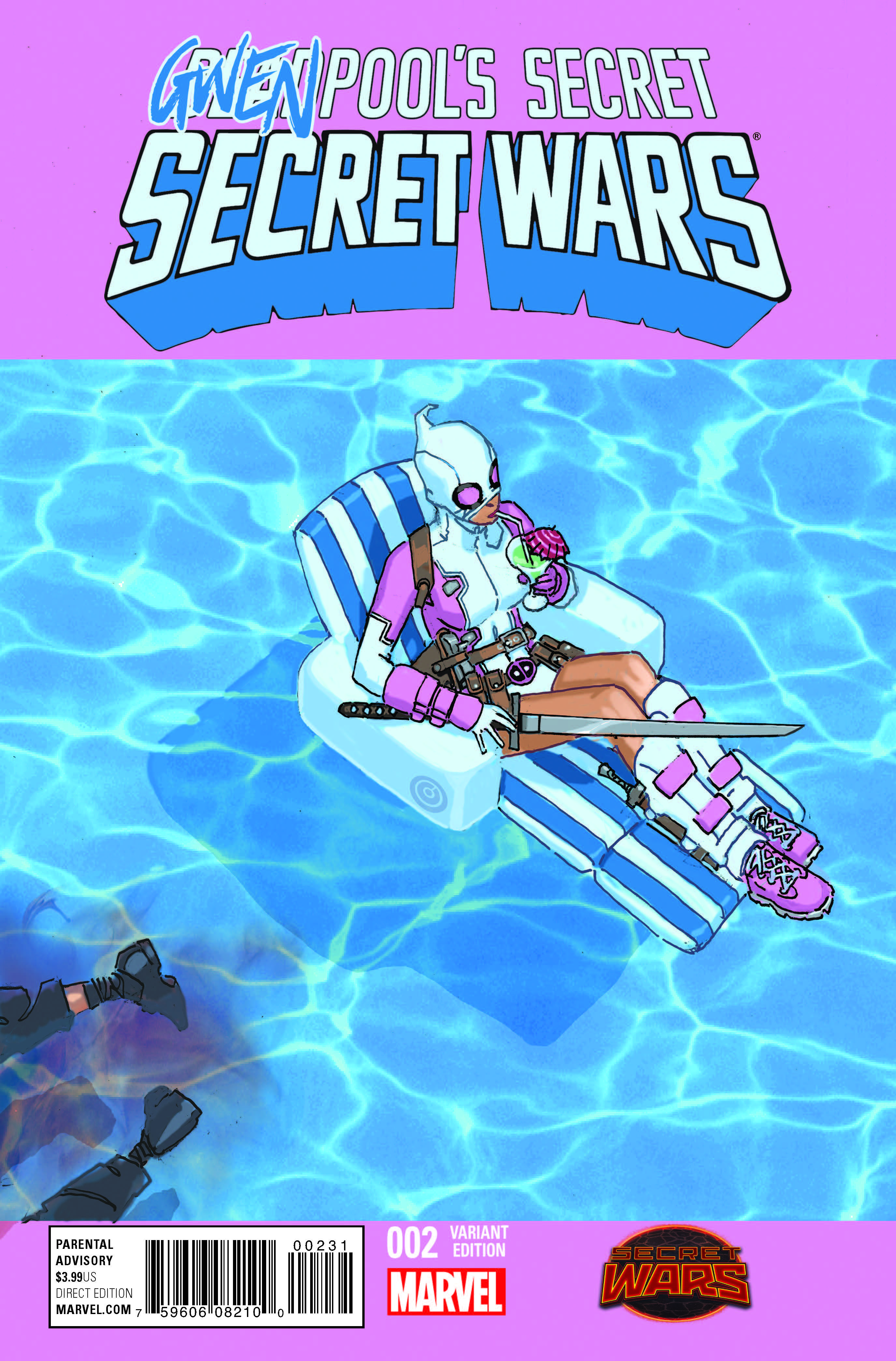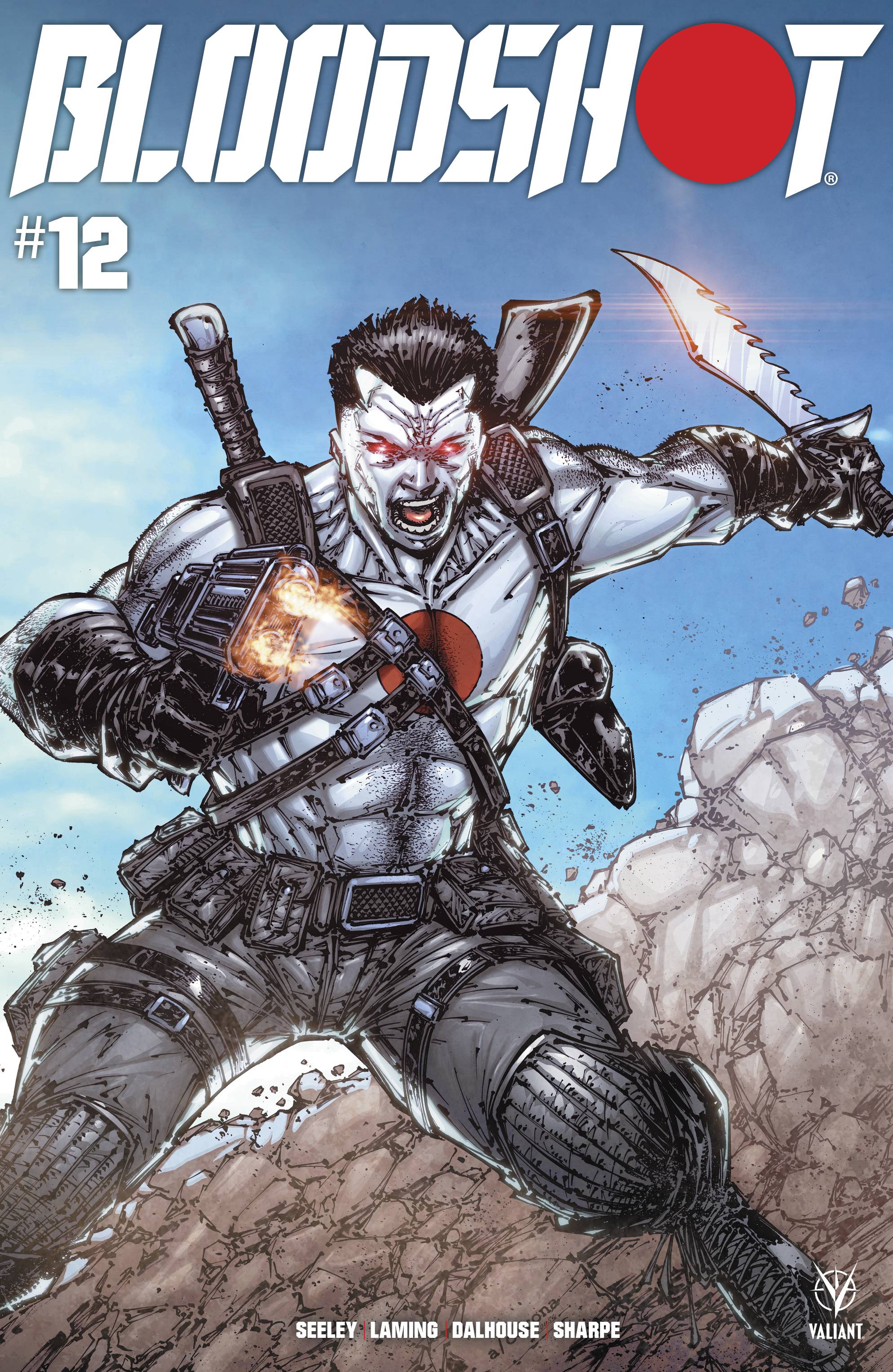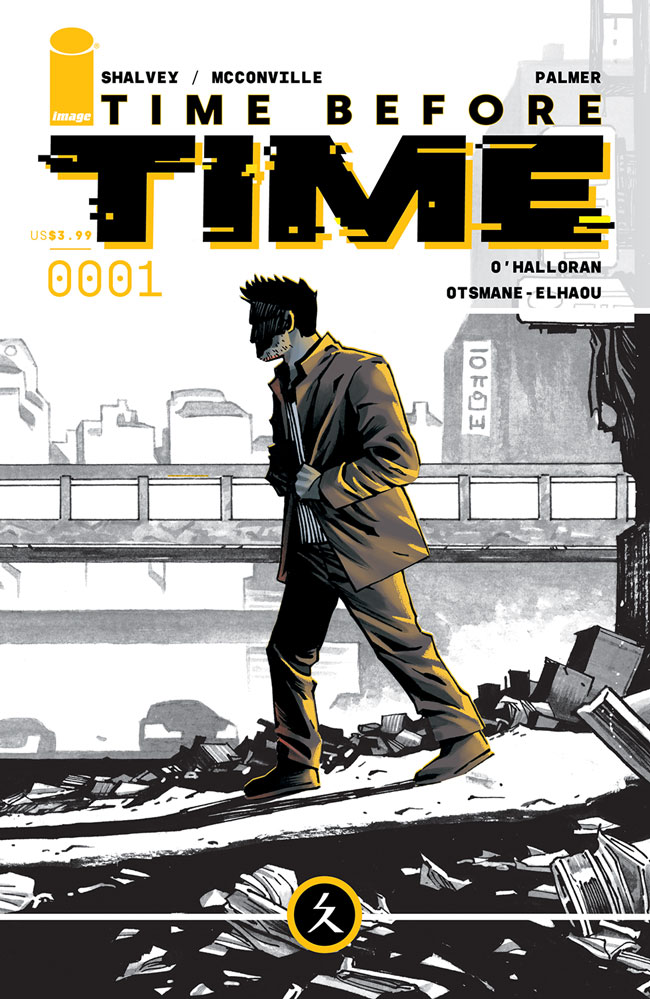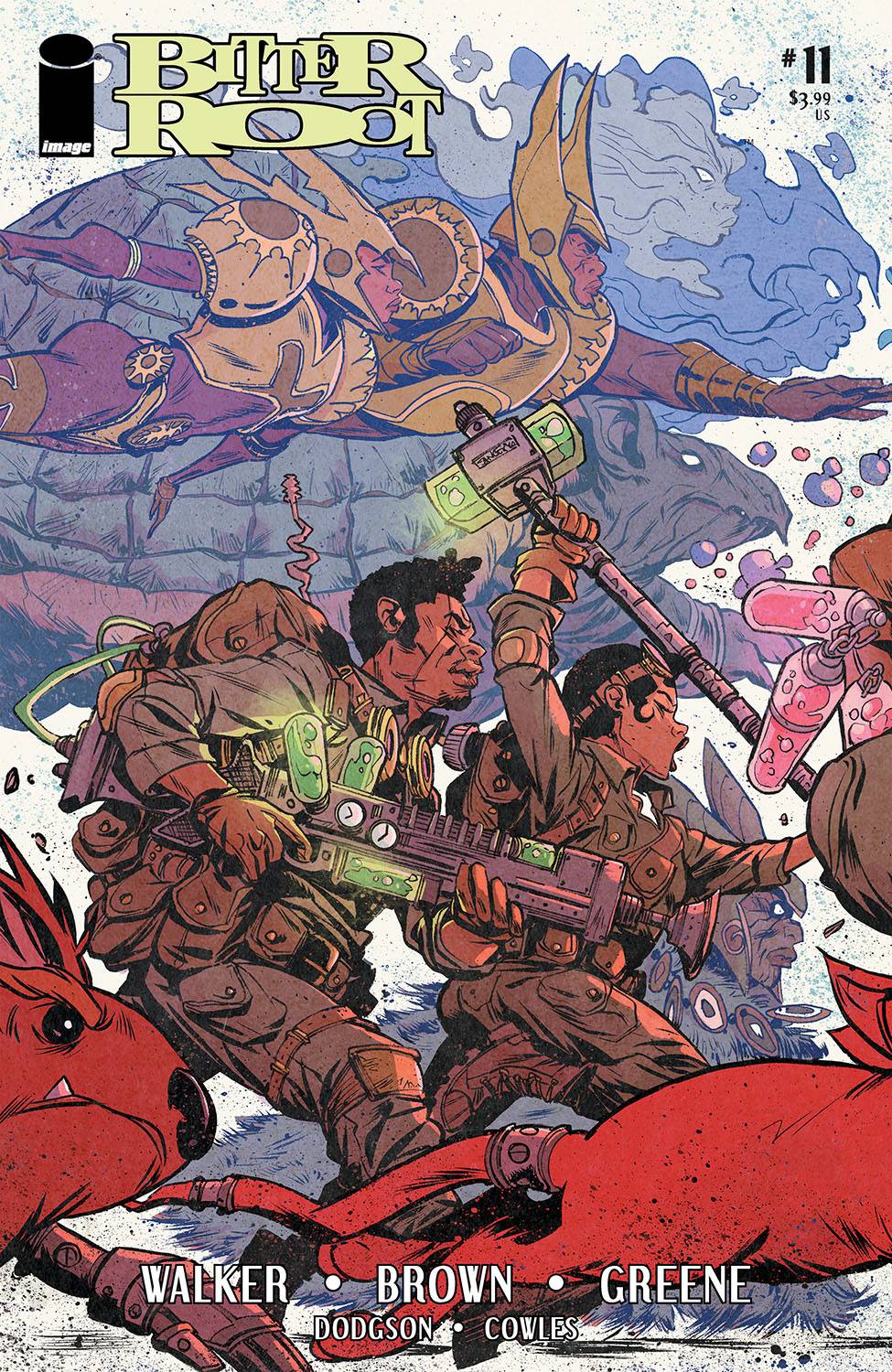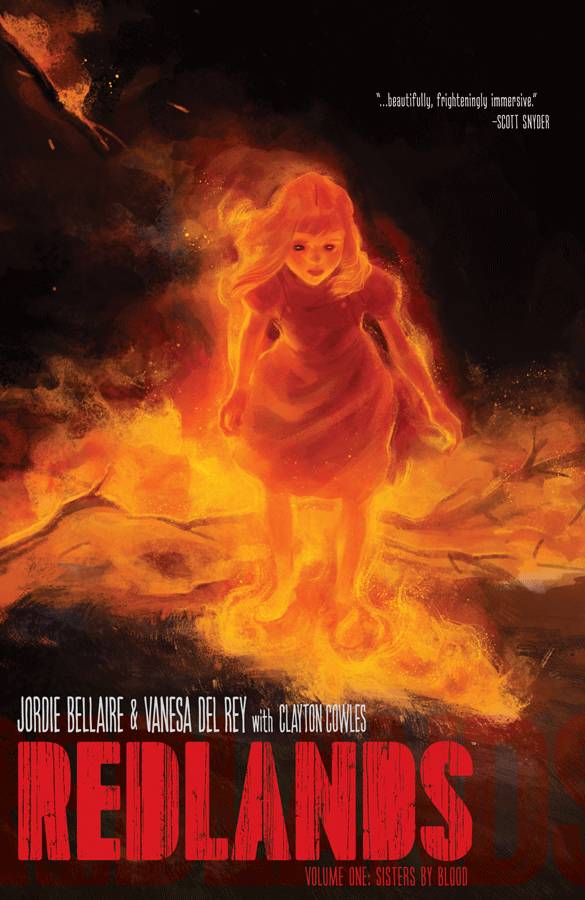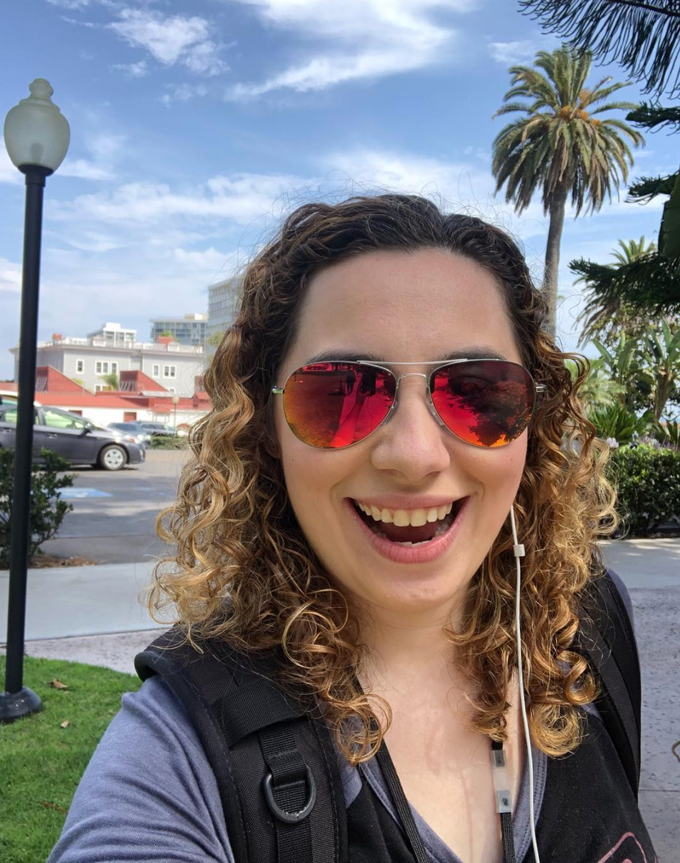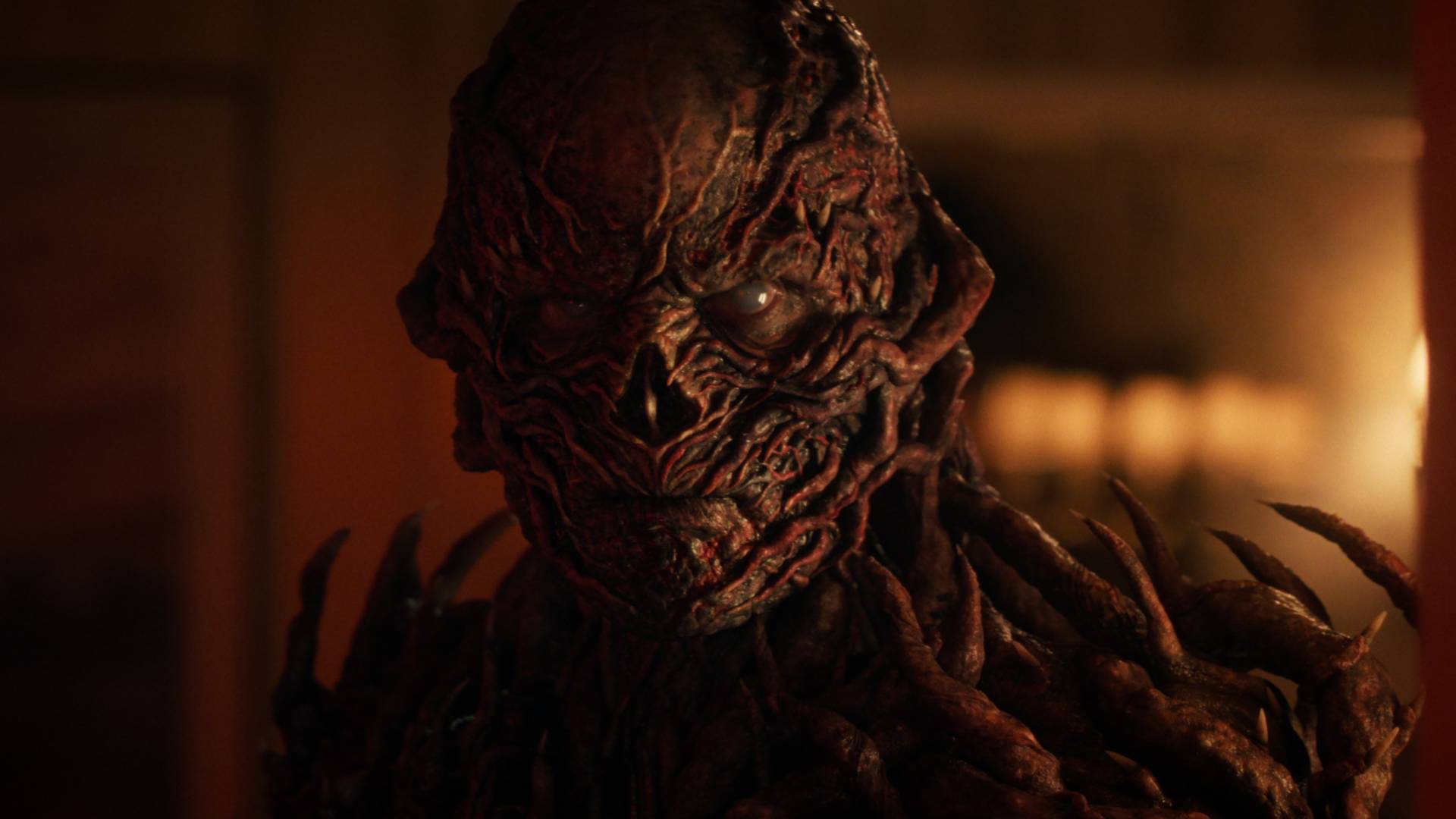The secret origin of Heather Antos
How do you become a top editor at a major comics publisher by 30? Heather Antos tells you how she did
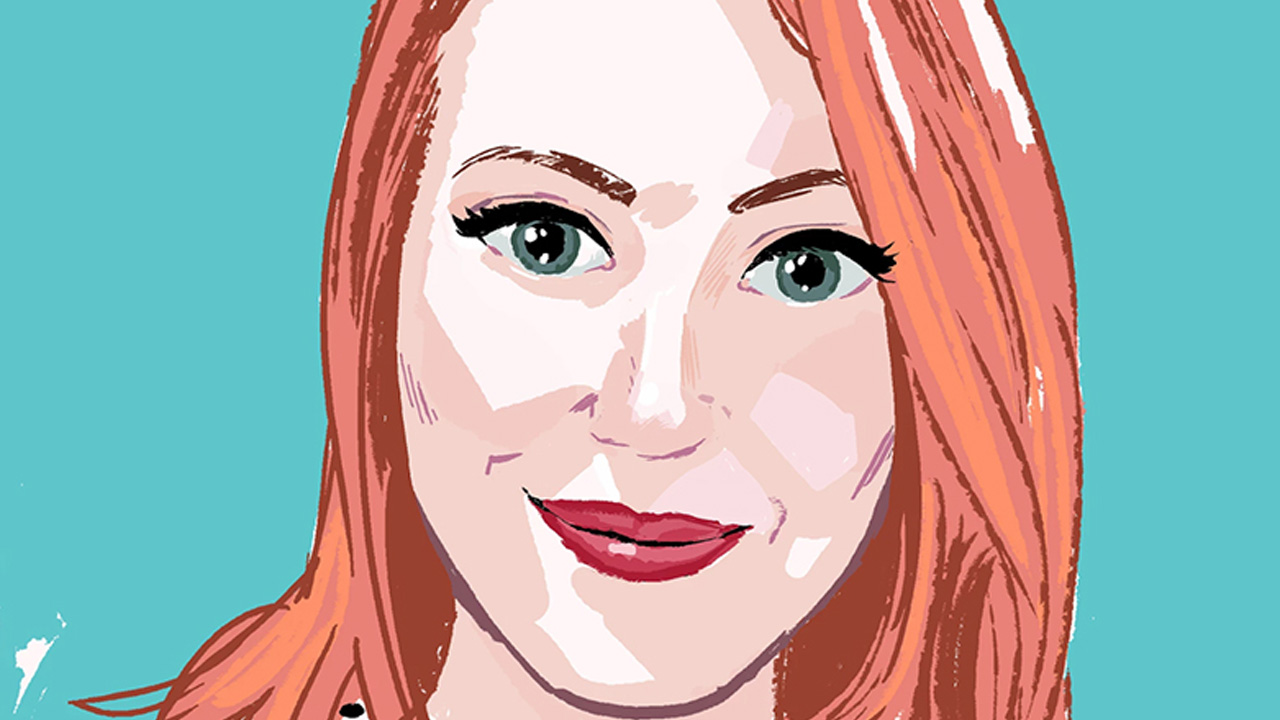
Heather Antos had made a name for herself as an outspoken editor and someone who, in just six years, has gone from assistant editor to senior editor.
During her three years at Marvel, she helped launch Marvel's massive Star Wars line and was part of the group which created the cult-favorite character Gwenpool. After her tenure at the House of Ideas, she branches out as a freelance editor of several Image Comics titles and eventually took over as a senior editor at Valiant Entertainment.
So how did she do all that by just 30 years of age? Well, that's where we come in.
As part of Newsarama's spotlight interview series 'The secret origin of...', we spoke with Heather Antos to learn about their path to comics - in this case from baby fingers holding crayons to holding the reigns as senior editor of one of the biggest superhero publishers in the world.
Newsarama: Heather, let's jump right in: what got you into comics?
Heather Antos: Honestly, I can't really ever remember a time I wasn't into comics. Hell, my mom says I drew my own comics before I knew what comics were!
From the second I could hold a crayon in my chubby kid fingers, all I wanted to do was draw and tell stories. I learned to read by fighting over the Sunday newspaper comic section with my brothers. Dinnertime was gathered around watching the Adam West and Burt Ward Batman '66 television show. Little did I know, my childhood set me up to be exactly where I am today!
Get the best comic news, insights, opinions, analysis and more!
Nrama: Do you remember the first comic book you read?
Antos: Not specifically. I know it wasn't the first by a longshot, but the first comic that really stuck with me - the first book that showed me that comics could be more than just capes, tights, and damsels in distress - was a little something called Sandman. Specifically, Sandman Vol 2 #6 - '24 Hours.' One of the most well-crafted and paced issues of one of the most brilliant comic series of all time—not to mention one of the most horrifying. What Gaiman & crew were able to do in 24 simple pages was so captivating, gut-wrenching, and powerful. I wanted to do that.
Nrama: When did you first understand really that people make comics for a living... and that you could as well?
Antos: It's funny - I had been a fan of comics, of superheroes, of Marvel and DC my entire life… and yet had somehow never considered that 'Oh, yeah, people get paid to make these' until shortly after college when I had decided I no longer wanted to pursue the film career I had been studying and preparing for the previous 18 years of my life.
The last several years I had spent my free time writing reviews and interviewing creators for various entertainment news sites, but it had never crossed my mind that I could be on the other end of those interviews one day. That was, until I was having a conversation with a friend of mine about trying to figure out what I wanted to do with my life, and he said, "You like comics. Why not just do that?"
Nrama: When did you know you wanted to become a comic book editor?
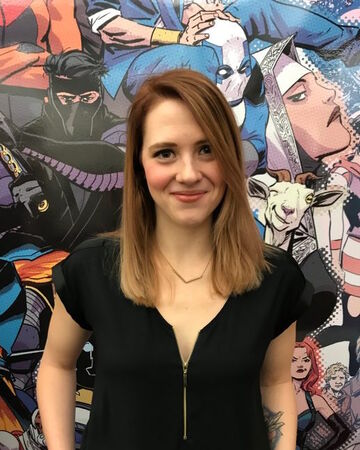
Antos: That conversation with my friend changed everything for me.
I very quickly became consumed with trying to figure out just where my skills fit best in the comic book industry. I loved to write, but I knew I didn't want to be a writer specifically. And same with an artist.
But every single book had these mysterious various 'editor' credits… assistant, associate, senior… what did they mean?! I knew more or less what it was an editor's job was in the traditional publishing sense… but comics felt so much more complex! They weren't just working with one creator… there was a whole team! Let alone entire universes they had to try and coordinate. I was intrigued, at the very least.
So, as any millennial in the blossoming age of social media would do, I began to put together a list of comic book editors and reach out via Twitter - 'Hi! Would you be willing to talk with me about comic book editing?' Fortunately, I had some bites!
I learned Marvel editor Jordan D. White would be attending C2E2 a few weeks later as would I, and he agreed to sit down with me to explain exactly what it is a comic book editor did. As soon as I left that show I knew becoming a comic book editor was exactly the career path I had been searching for. I was hooked.
Nrama: Fast-forward a little bit, and you began working at Marvel as an editor, under Jordan. One of the first times most fans took notice of you specifically was in co-creating Gwenpool - a character that actually debuted to the public here on Newsarama.
What went into co-creating Gwenpool? What was the collaboration process like?
Antos: It was strange, but fun. Normally you have an idea for a character before it gets designed… let alone before she's released to the public and they start creating cosplays and fan art for her! However, that's exactly what happened in Gwen's case.
Marvel had published one of their infamous themed variant cover months in honor of Gwen Stacy and the release of Spider-Gwen #1 by having Gwen plus various Marvel Hero mashups on other books. Gwen+Wolverine on an X-Men book, Gwen+Iron Man on Avengers, but it was Gwen+Deadpool that took the world by storm.
Upon the immediate fan reaction, the higher-ups at Marvel wanted to capitalize on this creation and see if there was truly something there. They approached the Deadpool editors (Jordan White and I) with the job to introduce the character of Gwenpool in a series of back-up short stories.
The only catch was, due to the back then film rights of X-Men and Spider-Man characters divvied up between Fox and Sony, our Gwenpool couldn't be attached to either Gwen Stacy or Wade Wilson. She had to debut in a 'true' Marvel book. Her comic book debut? Howard the Duck #1.
Jordan White, Nick Lowe, and myself brought writer Chris Hastings into the mix for a pow-wow on what we could do. It was during these initial diner meetings that the idea was brought forth – 'what if she came from our world?'
The rest is history!
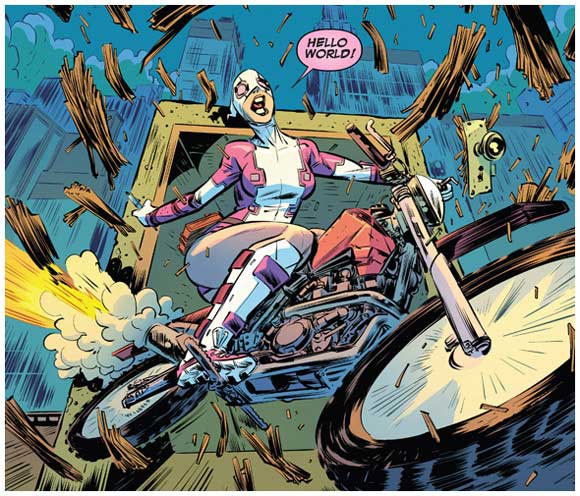
Nrama: Were you surprised that she was such a big hit? Why do you think readers gravitated to her?
Antos: Never in a million years would I have guessed that what began as a character mash-up variant cover of Gwen Stacy and Deadpool would end up becoming one of the break-outs comic book characters of 2016, carrying her own standalone series for 25 continuous issues, plus two one-shots. That's no small feat in modern comics!
I think she is such a breath of fresh air to modern superhero comics, while still speaking very very true to what makes characters like Peter Parker and relatable to audiences – she's just like us. Gwen maybe even more so because she is, at her core, such a comic book fan and a 'stuck' creative. She points out the ironies of comic book lore while still getting sucked into the universe to fight for her own survival. She's living every comic book fan's dream!
Nrama: What's been the most rewarding moment of your career thus far?
Antos: Hands down it's whenever I see a little girl cosplaying a character I helped bring to life.
My entire goal is to create characters and stories that I wish I had when I was growing up – always feel 'stuck' as the 'girl outside in a boys world.' I want to show girls that superhero comics, horror comics, action comics - the whole lot of them - are for girls, too,,, and not just in the sense that they are objects to be saved or won. Creating very real and rounded characters with flaws that grow and progress!
I've had a lot of amazing experiences in my career, but nothing will ever beat whenever a middle-aged man thanks me for giving him something he can share with his daughter. That's huge.
Nrama: Can you explain to us what you do currently? You're a senior editor at Valiant, but you also edit on the side. What does each of those involve?
Antos: The main difference between editing for a major publisher versus a creator-owned project is who it is that holds the 'keys'; this ultimate power of final creative say when story disagreements happen. And they do happen.
When it comes to managing the intellectual property for major properties and franchises, these editors are the 'Keeper of the Keys' to some of the biggest storylines and characters that modern media has ever known, with some of the fiercest and most passionate fans out there. How's the saying go? 'With great power…'
One of an editor's many responsibilities is being the first reader to any comic. They are the first set of fresh eyes to point out plot holes, continuity mistakes, etc. They are there to question the creators' motives - the first person to ask why these characters are behaving in such a way, in such a scene. The first person to question and correct if things just don't make sense.
Will every creator always agree with the notes and questions their editor is making and asking? Of course not.
That's when the rule of 'Keeper of the keys' comes into play. For a publishing house like Valiant, ultimately the editors in the Harbinger office get the final say on whether or not Faith decides to go on a murderous rampage. And no matter how much the writer may think it's the best idea that will ever hit comics, it doesn't matter. Valiant holds the keys.
On the flip side, I may have a note or suggestion on a script for Redlands, Bog Bodies, or Bitter Root, but if Jordie [Bellaire], Declan [Shalvey], or Chuck [Brown] and David [F. Walker] disagrees, no matter how much I back up my claim, stamp my feet, or hold up a boombox above my head outside their bedroom window, they hold the keys. It's their kingdom. I'm just an advisor.
Will an editor always make the best suggestion in their notes? Nope. Will they sometimes mislead a creative team? Sure. editors, shockingly, are human and, just like creators, can have ideas that aren't always the best, even with the best of intentions.
Nrama: How did you become a fan of the Valiant universe?
Antos: It was one of the bigger shows of 2014 - either C2E2 or New York Comic Con, I can't remember which - and I was walking the show floor when I passed by the Valiant booth. One of the sales staff asked me if I was a fan and I admitted I didn't know much about the universe aside from they had just done a massive relaunch.
We got to talking and I mentioned that I wrote for several comics news sites and asked if I would like to be put on their review list (I mean, who doesn't love free comics, am I right?!) and what sort of comics I was into – next thing I knew I walked out of there with the first volumes of both Shadowman and Harbinger. I've been a fan ever since!
Nrama: Are there any differences between editing for the DC and Marvel versus editing for other superhero universes?
Antos: Oh, absolutely. Being an independent company means that our characters aren't necessarily as big of household names as say… 'arachnid boy' and 'big boy blue'… so there's no guarantee that a casual comics fan will pick up our books off of familiarity alone. We must work harder and smarter with the stories we're telling to make sure they are absolutely the absolute best they can be.
We can't 'settle' for a last-minute-thrown-together-at-the-seat-of-our-pants event every year and 'hope' it lands, and then make up for it with seven spin-off series in the next year. Every comic we put out you can bet every person involved put their blood, sweat, and tears into making sure it absolutely is the very best comic it can be.
One of the benefits of not being so well-known, though, is that gives us more creative freedom to take risks, be creative, and branch out with stories or characters that don't necessarily fit the 'status quo' - and it's invigorating!
Nrama: Is there a creator, franchise, or company that you'd love to work for in the future?
Antos: I've been so fortunate to work with some of the biggest names in comics – creators, characters, and universes alike. But I'd be remiss if I didn't mention the superhero that started my superhero love… Batman.
Growing up on the Batman '66 television show, the Batman: The Animated Series, and of course, the Batman live-action films… I was thrilled to finally dive into Batman comics as a young adult. It would be an honor to one day work on the character, the family, the universe, in any capacity.
Nrama: I've seen the sketches you post on Twitter, they're beautiful. Do you ever see yourself diving into the writing or the illustration side of comics?
Antos: [Laughs]
I feel like I get asked this question once a week these days - thank you so much for the compliment! Don't get me wrong, I love dabbling in writing, and drawing and painting have always been such a relaxing wind-down routine for me, but I just don't see myself pursuing careers in them specifically full-time - at least at this point in my career! Who knows what the future holds?
Nrama: What is the #1 quality that makes a good editor?
Antos: Being able to get people to do what it is they say they're going to do WHEN they say they are going to do it at the absolute best quality they can…and still want to work with you again when that project is over…for 10-15 books a month.
Nrama: There's so much discourse about breaking in as a writer or artist, but how do you break into the industry as an editor?
Antos: Just like anything else creative, there's no one clear-cut way to 'break in' as an editor - Whether someone tries the more 'traditional' path of an internship in college hoping for a job offer upon graduation, or gets their boots on the ground running by starting out self-publishing like me (or any combination of the above).
For me personally, my goal was to make sure I had educated myself with as many skills as possibly necessary to the job - a background and familiarity of the language of writing, drawing, coloring, lettering, design, and production, experience managing creative teams, and managing schedules and budgets.
At the end of the day, an encyclopedic knowledge of in-universe history is an excellent asset to have, but that won't help you when it's the week of print and you're missing four pages of art.
Nrama: If you could change one thing in the comic industry, what would it be - and why?
Antos: An increase of respect all around, I think. Respect from the studios and publishers towards the creators that are the reason these multi-million (and sometimes BILLION) dollar franchises exist beyond the hope for a "special thanks" at the end of a credits sequence; Respect from the literary community that comics and OGNS are literature, and should be treated as such; And of course, mutual respect from creators, fans, and everyone in the community alike - that we are all human beings that genuinely love this medium and these characters, no matter our differing opinions on which stories/versions are subjectively 'best.'
Nrama: Heather, why do you love comics?
Antos: I mean, why wouldn't I love comics? It's one of the very few storytelling mediums where the creators are limited only by their imaginations. The possibilities are endless!
Nrama: Last question: where do you see yourself in five years? or ten?
Antos: Well, considering my 'goal' seven years ago was to "be working for a publisher in editorial by the time I'm 30" and I hit that… at 24… I'm very open to what the future holds for me! All I know for sure is I don't plan on being done in comics any time soon.
Y'all are stuck with me!
Like learning more about people in the industry? Check out our other Secret Origin spotlight Q&As such as those with Tom King, Mariko Tamaki, John Allison, J.M. DeMatteis, Joseph Illidge, and Ron Marz.
Kat has been working in the comic book industry as a critic for over a decade with her YouTube channel, Comic Uno. She’s been writing for Newsarama since 2017 and also currently writes for DC Comics’ DC Universe - bylines include IGN, Fandom, and TV Guide. She writes her own comics with her titles Like Father, Like Daughter and They Call Her…The Dancer. Calamia has a Bachelor’s degree in Communications and minor in Journalism through Marymount Manhattan and a MFA in Writing and Producing Television from LIU Brooklyn.
